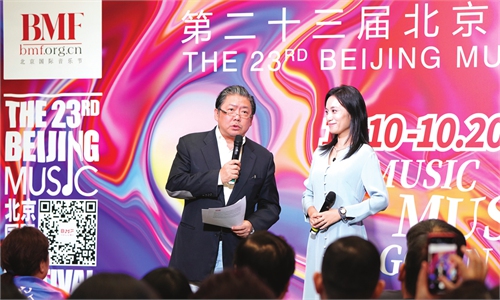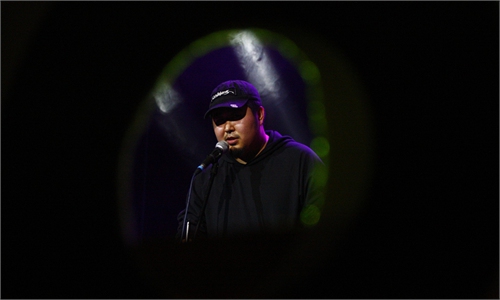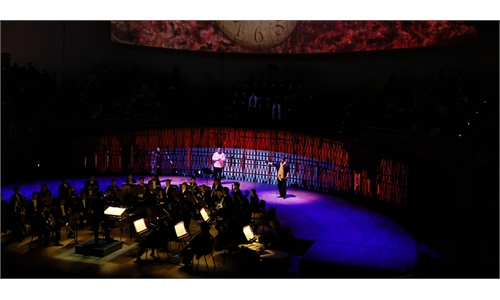ARTS / MUSIC
Beijing Music Festival, a feast to gather operas from around the world
Classical heritage
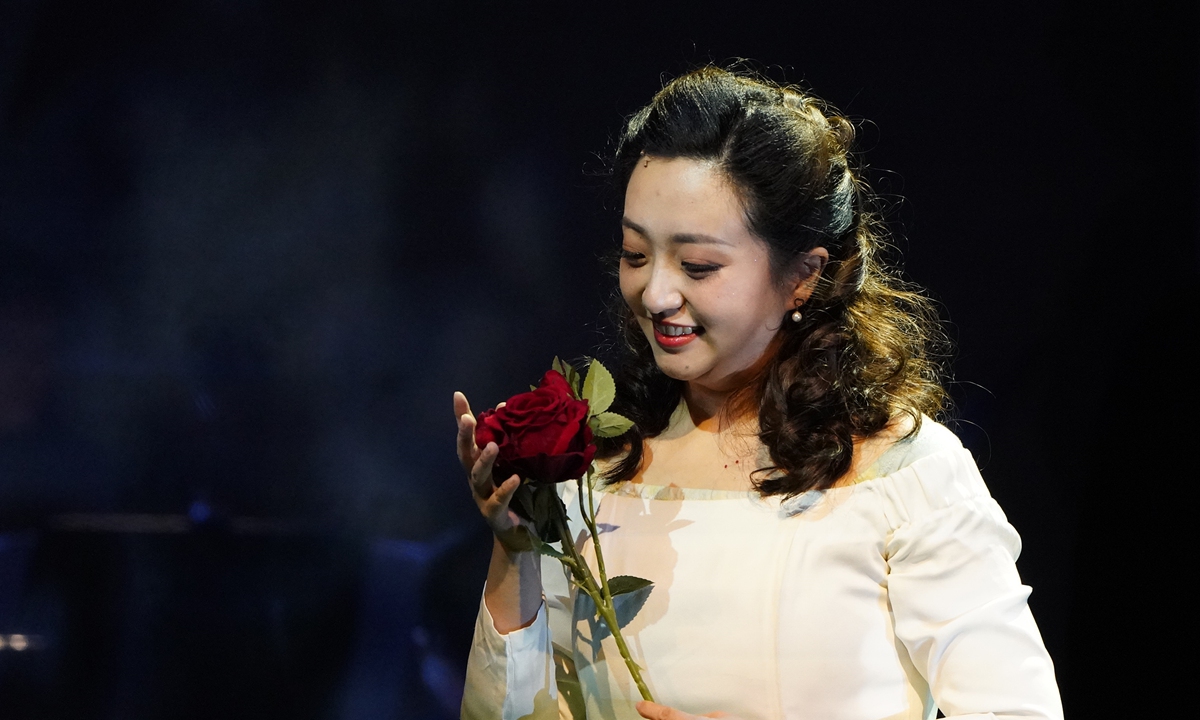
Promotional material for Songs of Nature Photo: Courtesy of BMF
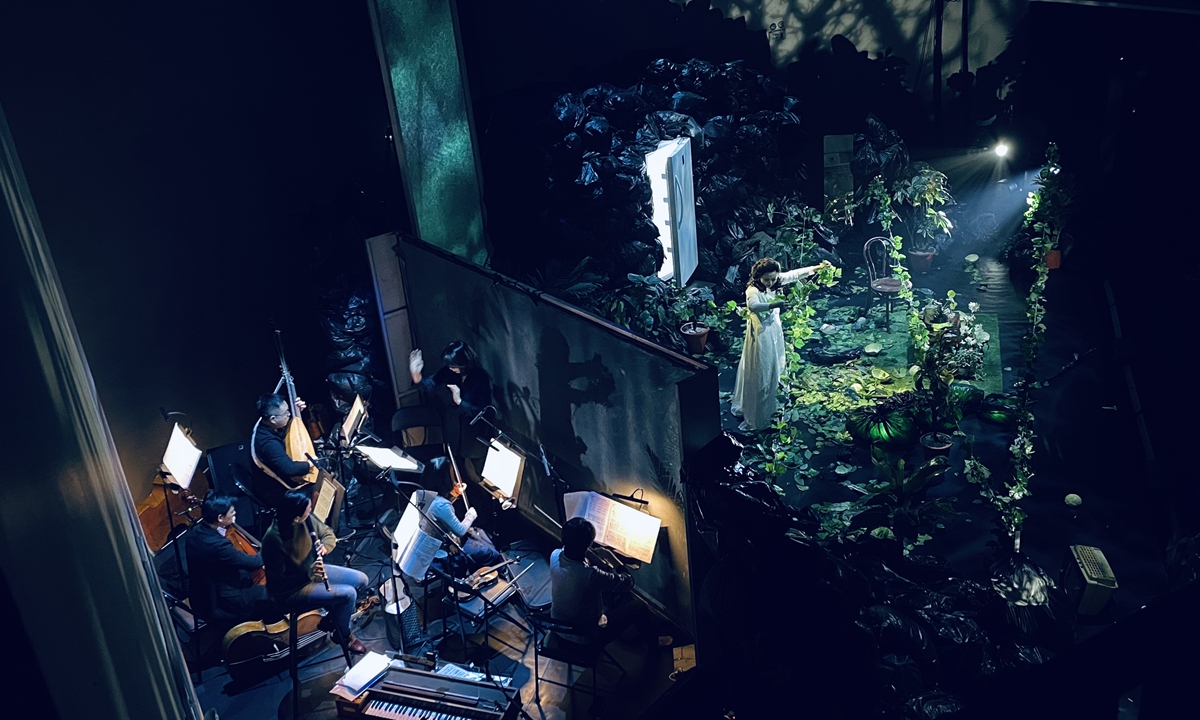
Promotional material for Songs of Nature Photo: Courtesy of BMF
Stravinsky's classic opera, Baroque Music Theater… The ongoing 24th Beijing Music Festival (BMF), one of the largest classical music events in China, is bringing a variety of works to Chinese audiences in Beijing under the theme of Masters and Celebrations in October.Opera premieres at BMF
In commemoration of the 50th anniversary of Russian composer Igor Stravinsky's death, the Chinese premiere of The Rake's Progress debuted at the BMF on Tuesday.
The opera was initiated by BMF, and co-produced by BMF and Shanghai Symphony Orchestra, adding Stravinsky's first work into the premiere list of BMF. This classic opera, performed by eight young Chinese singers, comes from the glorious era when music history entered modernism.
It tells the story of the fall of Tom Rakewell, who deserts Anne Trulove for the delights of London in the company of Nick Shadow, who turns out to be the Devil.
After several misadventures, all initiated by the devious Shadow, Tom ends up in Bedlam, a hospital for the insane in the City of London.
Stravinsky's music deepens and sets the dramatic effect in relief. The neo-classicism championed by Stravinsky is never as innocent as the imitation of historical musical styles it appears to be. Instead, many fundamental grammars in the traditions are subverted and deconstructed.
In the two and a half hours, we hear operatic elements from Monteverdi to Verdi via Rossini and Mozart, but nothing really progresses, like the Rake. We have to bear in mind that Stravinsky, in his neo-classical period, often took us to revisit the cradle of Western civilization in stage works like Apollo, Oedipus Rex, and Orpheus, and The Rake's Progress is no exception. The fact that he did so with intrinsically subversive music is itself an allegory of our time.
Concern for global warming
Another spotlight at the 24th BMF is Songs of Nature, the Baroque music theater work composed by the well-known German-British Baroque composer George Frideric Handel. The work premiered at the Red Pavilion in Sanlitun, a business street in Beijing, on Saturday and Sunday.
As climate change and global warming problems become more severe, more people have started to pay attention to global issues and call for more actions to protect the Earth. Based on social topics, BMF presented Songs of Nature at the festival to relive nature in Handel's eyes. Handel expresses his personal faith and religious beliefs in the context of worshipping the creator of nature. The expression through his music comes across as humanistic. It's witty, poignant and deeply moving. The poems not only explore the unique world painting of visible nature, but also interpret the human response to nature in a first-person perspective that is deeply emotional and at times metaphysical. Both The Rake's Progress and Songs of Nature are directed by Zou Shuang, BMF's Artistic Director.
A duty to opera art
As the birthplace of the cutting-edge works of the BMF, the Red Pavilion has staged very trendy works in both art and performance in recent years, including how the inheritance and innovation of culture is shared, and how the historical artistic heritage glow with a bright light in the new era.
In 2005, Richard Wagner's opera The Ring of Nibelung premiered in China at the BMF, showing the Chinese opera industry's recognition of and respect for German and Austrian opera.
The premiers of Orpheus in the Underworld and Serse at BMF demonstrate its broad perspective on the selection of repertoires. The performances of Chinese composers' operas including A Madman's Diary and Angel's Bone embody more Chinese elements at BMF.
BMF, China's first professional classical music festival as well as China's most innovative art institution, is taking the responsibility to show the cutting-edge scenes of the world's opera art to Chinese audiences.
